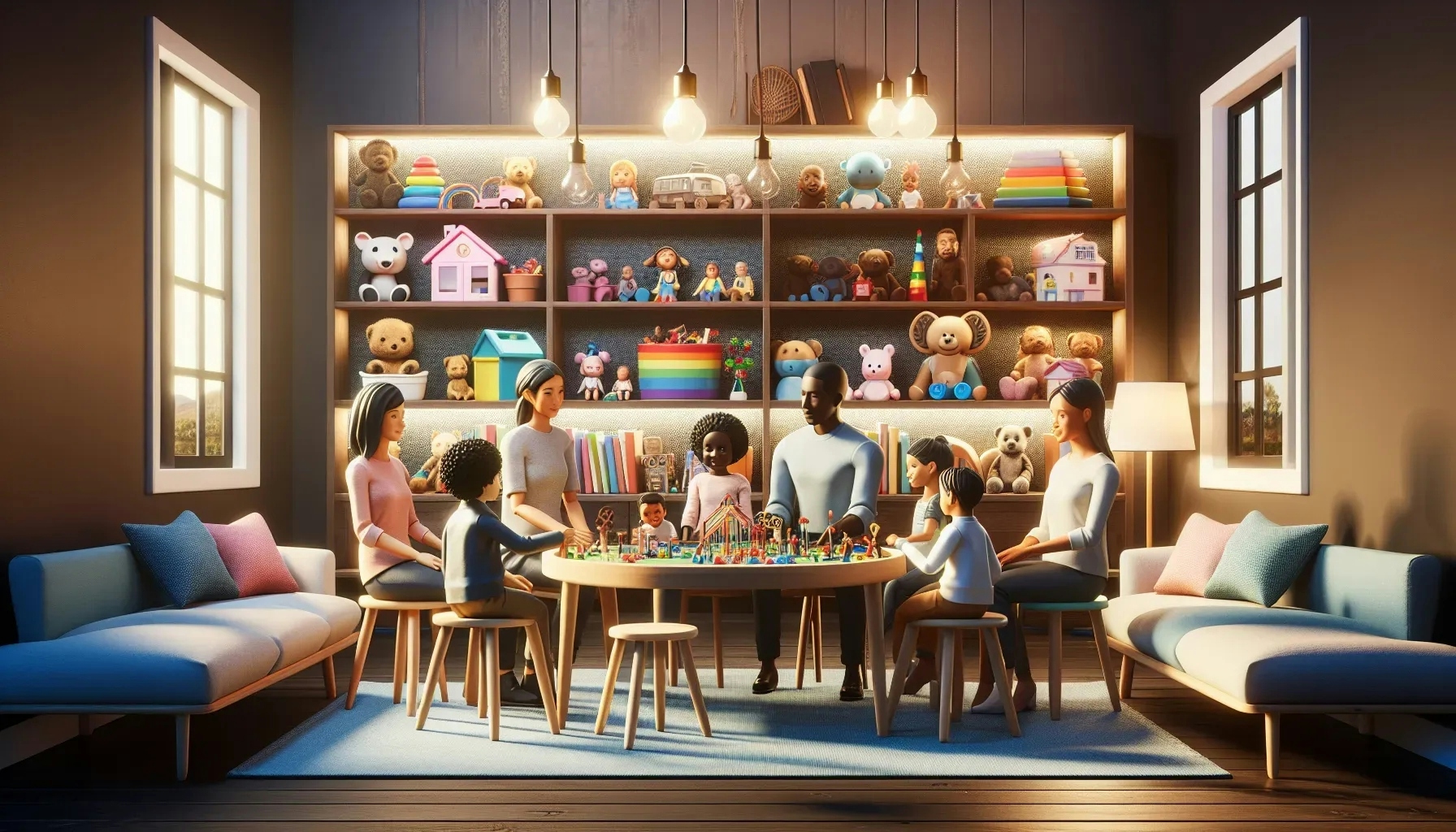What Are the Effects of Using Play Therapy in Family Counseling?
In the world of family counseling, play therapy can be a transformative tool, as evidenced by the experiences of our Senior Play Therapist and Counseling Psychologists. From enhancing family communication to creating safe spaces for expression, we've gathered five insightful examples showcasing the powerful effects of play therapy in real-life scenarios.
- Enhancing Family Communication Through Play
- Expressing Grief Collectively with Play Therapy
- Bridging Adult-Child Worlds via Play
- Role-Play to Understand Family Perspectives
- Creating Safe Spaces for Family Expression
Enhancing Family Communication Through Play
Play is a child's language, so using it in a family session can help parents communicate more effectively with their child. By giving the family a playful task that focuses on issues such as communication skills, bonding with one another, and trust and safety, the family can communicate their needs and gain a better understanding of each other. Being able to play and laugh together can help the family see each other in a less critical way, find each other's strengths, and meet their needs in a positive and nurturing environment.
Expressing Grief Collectively with Play Therapy
Play therapy is effective in being able to express oneself in a way that words cannot. I've worked with a family of four that included two sons; one of the sons had gone missing, and none of the family members had spoken about it because it was too painful, but it was obvious that it was tearing them apart.
Through the use of play therapy, we were able to introduce a way that the whole family could express their collective grief and see what the other family members were experiencing. It couldn't have happened through words because it was too close to home. They were able to process their grief as a family and reconnect emotionally. It didn't solve the problem per se, but they were at least no longer feeling alone in their pain, and that was healing in itself.

Bridging Adult-Child Worlds via Play
Play is the language of children and helps them better understand their world as well as process their experiences. Often, children exist in a world of rules and structure, affecting the quality of their interactions with their grown-ups. Play therapy works to bridge the gap between adults and children's worlds, allowing the family to express internal and external conflicts symbolically to improve family dynamics.
Often, I see parents struggling with behavioral difficulties in their young children and are encouraged to follow the child's lead in therapy. Trust, communication, and authenticity are the foundations of any therapy, and play therapy makes use of these key components all on its own. Play therapy cuts through the noise of predictability, defenses, and power struggles that can occur in traditional family talk therapy by facilitating a closeness and unspoken understanding through the innate exchanges of play between parents and child. Play therapy can be incredibly useful in creating and repairing attachment wounds, encouraging vulnerability, as well as facilitating the family’s natural tendency toward connection.
Role-Play to Understand Family Perspectives
Family and play therapy go hand in hand. It can be used as a way to express emotions, feelings, and thoughts creatively among members. I implemented it in one of my sessions where there was a lot of anger and resentment among three members (mother, father, and daughter). Creative visualization and role-play were done to understand different perspectives and 'be in the shoes' of another. 'I statements' were also used to better express feelings rather than playing the blame game with 'you did this.' This helped all three of them to identify triggers and problems and find better ways to navigate them.
Creating Safe Spaces for Family Expression
Incorporating play therapy in family counseling helps in observing the ability to create a safe space for all family members to express themselves comfortably. Through play, complex family dynamics are explored, fostering improved communication, problem-solving, and identification of underlying issues. Over time, this approach promotes enhanced emotional regulation, empathy, and stronger familial connections, yielding positive outcomes within the family unit.

